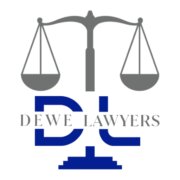Best Toxic Tort Lawyers in Port Moresby
Share your needs with us, get contacted by law firms.
Free. Takes 2 min.
List of the best lawyers in Port Moresby, Papua New Guinea
About Toxic Tort Law in Port Moresby, Papua New Guinea:
Toxic Tort law in Port Moresby, Papua New Guinea deals with legal issues arising from exposure to harmful substances or toxins that result in injury or illness. These cases often involve individuals or communities affected by pollution, hazardous chemicals, or other environmental hazards.
Why You May Need a Lawyer:
You may need a lawyer for Toxic Tort cases in Port Moresby if you have suffered harm due to exposure to toxic substances. A lawyer can help you navigate the legal process, gather evidence, and pursue compensation for damages such as medical expenses, lost wages, and pain and suffering.
Local Laws Overview:
In Port Moresby, Papua New Guinea, laws related to Toxic Tort are primarily governed by environmental regulations and tort laws. Companies or individuals responsible for causing harm through toxic exposure can be held liable for negligence or violations of environmental laws.
Frequently Asked Questions:
1. What types of toxic substances can result in a Toxic Tort case?
Common toxic substances include asbestos, lead, pesticides, industrial chemicals, and pollutants from landfills or factories.
2. How soon should I contact a lawyer if I suspect Toxic Tort exposure?
It is best to contact a lawyer as soon as possible to ensure timely investigation and preservation of evidence.
3. How can I prove that toxic exposure caused my health issues?
Evidence such as medical records, expert testimony, and documentation of exposure history can help establish a causal link between toxic substances and health effects.
4. What types of damages can I seek in a Toxic Tort case?
You may seek compensation for medical expenses, lost income, pain and suffering, and punitive damages in certain cases.
5. Is there a statute of limitations for filing a Toxic Tort claim in Port Moresby?
Yes, there is a limit on how long you have to file a claim, so it is important to consult with a lawyer promptly.
6. Can a class-action lawsuit be filed for Toxic Tort cases in Port Moresby?
Yes, a class-action lawsuit may be an option if multiple individuals are affected by the same toxic exposure.
7. What role does the government play in regulating toxic substances in Papua New Guinea?
The government enforces environmental regulations and may investigate instances of toxic exposure to protect public health and safety.
8. How do I choose the right lawyer for my Toxic Tort case?
Look for a lawyer with experience handling Toxic Tort cases, knowledge of local laws, and a track record of successful outcomes.
9. Can I afford legal representation for a Toxic Tort case?
Many lawyers offer free consultations and work on a contingency fee basis, meaning they only get paid if you win your case.
10. What steps should I take if I suspect toxic exposure at my workplace or in my community?
Document any symptoms, seek medical attention, report the issue to relevant authorities, and consider consulting a lawyer for legal advice.
Additional Resources:
For more information on Toxic Tort law in Port Moresby, Papua New Guinea, you can contact the Environmental Protection Authority or seek advice from legal aid organizations such as the Papua New Guinea Law Society.
Next Steps:
If you believe you have a potential Toxic Tort case in Port Moresby, Papua New Guinea, contact a qualified lawyer specializing in this area of law to discuss your options and take the necessary steps to protect your rights and seek compensation for any damages you have suffered.
Lawzana helps you find the best lawyers and law firms in Port Moresby through a curated and pre-screened list of qualified legal professionals. Our platform offers rankings and detailed profiles of attorneys and law firms, allowing you to compare based on practice areas, including Toxic Tort, experience, and client feedback.
Each profile includes a description of the firm's areas of practice, client reviews, team members and partners, year of establishment, spoken languages, office locations, contact information, social media presence, and any published articles or resources. Most firms on our platform speak English and are experienced in both local and international legal matters.
Get a quote from top-rated law firms in Port Moresby, Papua New Guinea — quickly, securely, and without unnecessary hassle.
Disclaimer:
The information provided on this page is for general informational purposes only and does not constitute legal advice. While we strive to ensure the accuracy and relevance of the content, legal information may change over time, and interpretations of the law can vary. You should always consult with a qualified legal professional for advice specific to your situation.
We disclaim all liability for actions taken or not taken based on the content of this page. If you believe any information is incorrect or outdated, please contact us, and we will review and update it where appropriate.








